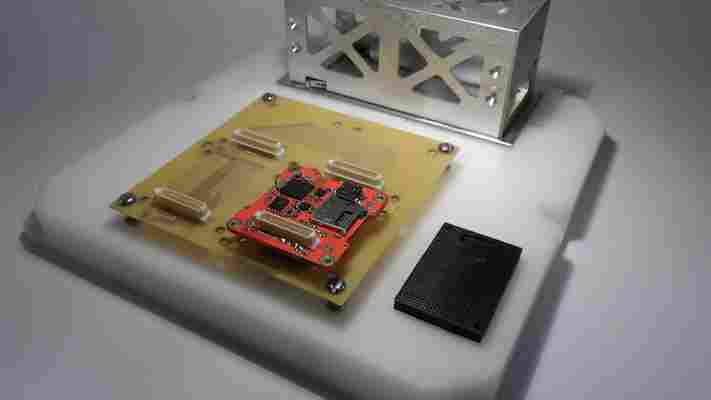If Interstellar infected you with a renewed passion for space, the PocketQube Kit could be the thing for you. Developed by a Glasgow-based startup, it includes all the components needed to build a micro-satellite.

PocketQube satellites are 5cm cubes that hold the record for being the smallest spacecraft to be successfully launched into and operated in orbit. They were first proposed by Professor Bob Twiggs of Morehead State University as a means of tackling the cost of launching satellites for university groups on a tight budget.
There are currently four PocketQubes in orbit after a successful launch on a Russian rocket late last year. Glasgow-based entrepreneur, Tom Walkinshaw, the founder and CEO of Alba Digital, hopes to majorly increase the number with the new PocketQube Kit.
The kit contains the main building blocks for a small budget satellite project – a spacecraft structure, a radio board, an onboard computer and a Labsat development board to test different electronics boards.
Using a common, community-led standard interface for electronics boards called PQ60 means the PocketQube Kit can interface with a wide range of third-party hardware to carry custom payloads such as sensors. Walkinshaw says he can envisage projects to fly new smartphones into space or test 3D printed parts.
The base version of the PocketQube kit starts at $5,999 (£4,000) but there are multiple configurations available. The company estimates that it will cost around $35,000 in total to launch one of the satellites into orbit, a lot less than the minimum $150,000 required to launch larger models.
➤ PocketQube Kit [PocketQube Shop]
Lawsuit claims Skully founders used Indiegogo cash on strip clubs and sports cars
Skully, the next-generation motorcycle helmet company, recently went bust . A new lawsuit may shed some light on why; the founders spent Indiegogo money on sports cars and strip clubs.

Filed in San Francisco by a former employee of Skully, Isabelle Faithhauer, the lawsuit claims founders Marcus and Mitchell Weller have been using money gained through its Indiegogo campaign to fund lavish lifestyles. On top of the Lamborghini, Audi R8, Dodge Vipers and fancy motorcycles, Skully was paying for apartments all over the Bay Area.
The apartments were used by the Wellers and their family, and Faithhauer says she was made to file it under ‘corporate housing.’
If the overspending on the company dime weren’t enough, check out this tidbit:
Trading one paradise for another. Amazing.
To ice this cake, it seems Marcus Weller was also insesitive to Faithhauer’s autistic son. According to the suit, she would bring her son to work on Fridays as approved by the Wellers. When Weller brought his dog in one Friday, he asked that she put her “dog on a leash so [he] can let his kid run around.”
After a vacation, Faithhauer was fired. She refused a severance package and claims she was never paid for overtime.
Skully has yet to respond to the charges, but they are damning. In response to the news Skully was not going to produce its motorcycle helmet, the company told The Next Web it was “working through the complexities of an emerging-growth startup reality.”
And it looks like things just got a lot more complex.
Update : This article has been edited to reflect Skully was crowdfunded on Indiegogo, not Kickstarter.
Dell is giving its beloved XPS 13 the 2-in-1 treatment
Since it launched, there’s been a lot to love about Dell’s XPS 13 laptop : A slim bezel for a nearly edge-to-edge display, a beautifully styled thin and light body and powerful new hardware specs, thanks to an overhaul last September .

The company told TNW last October that it was working on 2-in-1 version that would fold into a tablet, and we’ve now got our first look at it from a product page on Dell’s site , first spotted by Windows Central .
Combine a convertible design with the most recent upgrades that include an efficient Kaby Lake processor, a larger battery and faster RAM, and you’ve got yourself a recipe for a killer compact laptop.
It’ll be interesting to see if Dell can fit in all the necessary hardware for its new 2-in-1 into the same frame as the previous iteration of the XPS 13, which is roughly the size of other brands’ 11-inch notebooks.
There aren’t any details on the upcoming device, but we’re expecting to hear more at this week’s CES expo in Las Vegas – we’ll be there covering all the latest and greatest gadgets, so be sure to stay tuned to TNW for more.
